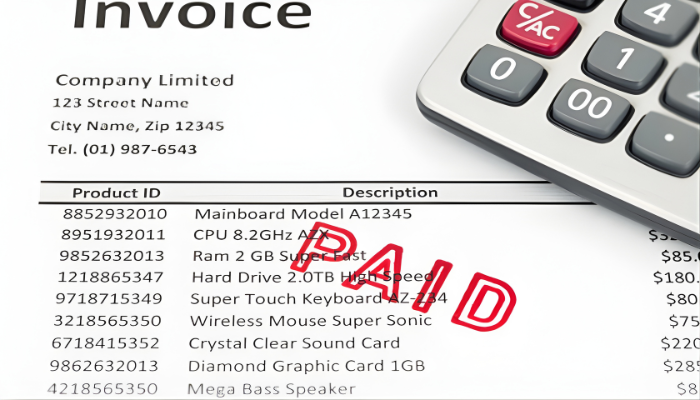
Risk is one of those words you cannot get away from when it comes to any sort of credit or financing. Risk can be defined as the probability that an investment's actual return will be different than what was anticipated. Higher risk means a higher probability that something will go wrong. Lower risk means a lower probability.
Factoring, like all other forms of financing, has certain risks for both the factoring company and the business whose invoices are being factored. Before you start factoring your company's invoices, you should be aware of these risks and their potential impacts.
From the Factoring Firm's Perspective
The factoring firm wants to determine the level of risk that you and your A/R portfolio presents, before they will agree to factor your company's invoices. They do this by examining your outstanding invoices, as well as the customers behind them.
- Are the invoices real? They will first want to determine the invoices are real. It is too easy to generate fake invoices. The factor will verify that your invoices are genuine and that you actually sold product or services to the companies that are in your A/R ledger.
- Do you depend on only one or two major customers? A factor will want to verify that you have a good diversity of customers. Some companies rely on one or two customers for almost all of their business. If one of those customers stopped paying invoices, the company would likely go under quickly. So, having a good balance of customers in the A/R portfolio is deemed lower risk than only have one or two major ones.
- Are your customers creditworthy? The factoring company will also want to verify the customers with outstanding invoices have a good history of paying. They don't want to advance money on invoices that have a high risk of going unpaid.
- What does your personal credit history look like? Since many small businesses rely on the credit history of the owner, the factoring company is going to do the same. While a poor personal credit history will likely not stop the factoring company from doing business with you, you may pay higher fees if you have a poor personal credit history.
All of the investigation the factoring company will do is focused on determining the credit risk that you and your portfolio of invoices represent. That risk level helps determine if they will agree to factor your invoices and what kinds of fees your company will pay.
From Your Perspective
There is risk on both sides of the factoring agreement. Even if the factoring firm agrees to factor your invoices, you still need to consider the risk on your side.
If your clients have an unreliable record for paying invoices, you will be paying a higher factoring fee. You may find that the cost of invoice factoring is so high that it is unaffordable for your needs. However, you may find that paying higher fees to free up money to expand your business is a good investment. It all depends on your company and your immediate needs.
What happens if the customer never pays the invoice? The consequences depend on the contract you sign. In many cases, the factoring company will require that the money advanced on that invoice will need to be repaid. Plus, you may have to pay the factoring fee as well. A small invoice may not be a big deal. But, what if it was on of the big ones? You may find yourself owing money that you didn't anticipate.
There is risk involved with invoice factoring. The factoring company is going to assess it when they determine if they want to do business with you. You should assess your own risk before turning over your invoices.

















